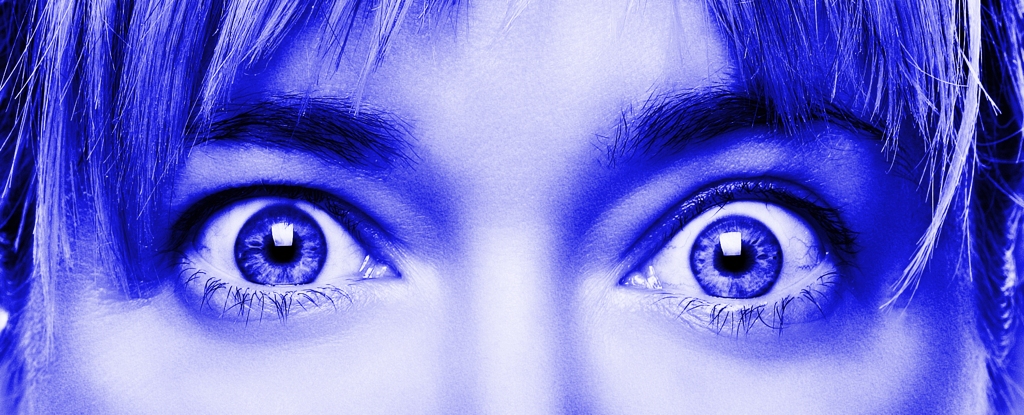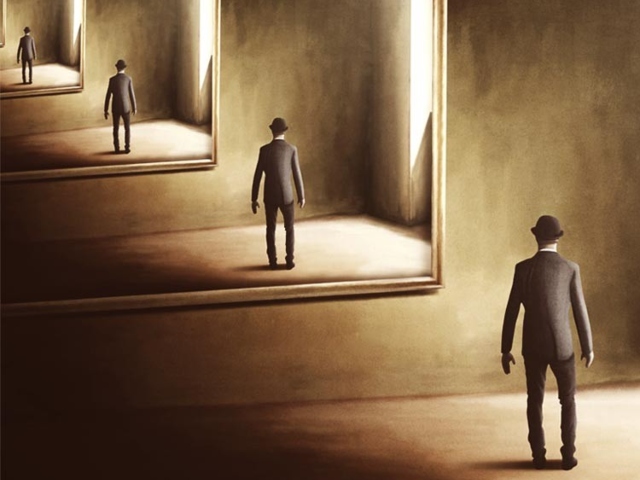

In psychology, jamais vu i a French loanword meaning "never seen", is the phenomenon of experiencing a situation that one recognizes in some fashion, but that nonetheless seems novel and unfamiliar.
Jamais vu is often described as the opposite of deja vu. Jamais vu involves a sense of eeriness and the observer’s impression of experiencing something for the first time, despite rationally knowing that they have experienced it before. Jamais vu is sometimes associated with certain types of aphasia, amnesia, and epilepsy.
Jamais vu is more commonly explained as when a person momentarily does not recognise a word or, less commonly, a person or place, that they already know. This can be achieved by anyone by repeatedly writing or saying a specific word out loud. After a few seconds one will often, despite knowing that it is a real word, feel as if "there's no way it is an actual word."
The phenomenon is often grouped with deja vu and presque vu (tip of the tongue, literally "almost seen").
Theoretically, a jamais vu feeling in a sufferer of a delirious disorder or intoxication could result in a delirious explanation of it, such as in Capgras delusion, in which the patient considers someone they know to be a false double or impostor. If the patient sees themselves as the impostor, the clinical setting would be the same as the one described as depersonalization; hence, jamais vus of oneself, or of the very "reality of reality", are termed depersonalization and derealization, respectively. Continue reading
The Opposite of Deja Vu Is a Thing Called Jamais Vu And It's Even More Uncanny Science Alert - January 12, 2024

Jamais vu may involve looking at a familiar face and finding it suddenly unusual or unknown. Musicians have it momentarily - losing their way in a very familiar passage of music. You may have had it going to a familiar place and becoming disorientated or seeing it with "new eyes". It's an experience which is even rarer than deja vu and perhaps even more unusual and unsettling. When you ask people to describe it in questionnaires about experiences in daily life they give accounts like: "While writing in my exams, I write a word correctly like 'appetite' but I keep looking at the word over and over again because I have second thoughts that it might be wrong."
Jamais vu: The science behind eerie opposite of deja vu Medical Express - September 16, 2023

Research found that the phenomenon arises when the part of the brain which detects familiarity de-synchronizes with reality. Repetition has a strange relationship with the mind. Take the experience of deja vu, when we wrongly believe have experienced a novel situation in the past - leaving you with an spooky sense of pastness. But we have discovered that deja vu is actually a window into the workings of our memory system. Researchers found that the phenomenon arises when the part of the brain which detects familiarity de-synchronizes with reality. Deja vu is the signal which alerts you to this weirdness: it is a type of "fact checking" for the memory system. But repetition can do something even more uncanny and unusual. The opposite of deja vu is "jamais vu," when something you know to be familiar feels unreal or novel in some way.